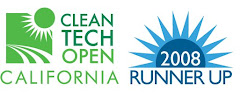 An auld song from the grandparents has been kickin' round my head today:
An auld song from the grandparents has been kickin' round my head today:After the ball is over
After the break of morn
After the dancers' leaving
After the stars are gone
Many a heart is aching
If you could read them all
Many the hopes that have vanished
After the ball
Well, I guess you had to hear it in 3/4 time...
So now let's get to work. The draft American Recovery and Reinvestment Act details. Here are areas that may touch on GSHP in one way or another:
Local Government Energy Efficiency Block Grants: $6.9 billion to help state and local governments make investments that make them more energy efficient and reduce carbon emissions.
Energy Efficiency Housing Retrofits: $2.5 billion for a new program to upgrade HUD sponsored low-income housing to increase energy efficiency, including new insulation, windows, and furnaces.
Energy Efficiency and Renewable Energy Research: $2 billion for energy efficiency and renewable energy research, development, demonstration, and deployment activities to foster energy independence, reduce carbon emissions, and cut utility bills.
Advanced Battery Loans and Grants: $2 billion for the Advanced Battery Loan Guarantee and Grants Program, to support U.S. manufacturers of advanced vehicle batteries and battery systems.
Energy Efficiency Grants and Loans for Institutions: $1.5 billion for energy sustainability and efficiency grants and loans to help school districts, institutes of higher education, local governments, and municipal utilities implement projects that will make them more energy efficient.
Home Weatherization: $6.2 billion to help low-income families reduce their energy costs by weatherizing their homes and make our country more energy efficient.
Department of Defense Research: $350 million for research into using renewable energy to power weapons systems and military bases.
Alternative Buses and Trucks: $400 million to help state and local governments purchase efficient alternative fuel vehicles to reduce fuel costs and carbon emissions.
Industrial Energy Efficiency: $500 million for energy efficient manufacturing demonstration projects.
Diesel Emissions Reduction: $300 million for grants and loans to state and local governments for projects that reduce diesel emissions, benefiting public health and reducing global warming.
Department of Energy: $400 million for the Advanced Research Project Agency – Energy to support high-risk, high- payoff research into energy sources and energy efficiency.
Local Government Energy Efficiency Block Grants: $6.9 billion to help state and local governments make investments that make them more energy efficient and reduce carbon emissions.
Energy Efficiency Housing Retrofits: $2.5 billion for a new program to upgrade HUD sponsored low-income housing to increase energy efficiency, including new insulation, windows, and furnaces.
Energy Efficiency and Renewable Energy Research: $2 billion for energy efficiency and renewable energy research, development, demonstration, and deployment activities to foster energy independence, reduce carbon emissions, and cut utility bills.
Advanced Battery Loans and Grants: $2 billion for the Advanced Battery Loan Guarantee and Grants Program, to support U.S. manufacturers of advanced vehicle batteries and battery systems.
Energy Efficiency Grants and Loans for Institutions: $1.5 billion for energy sustainability and efficiency grants and loans to help school districts, institutes of higher education, local governments, and municipal utilities implement projects that will make them more energy efficient.
Home Weatherization: $6.2 billion to help low-income families reduce their energy costs by weatherizing their homes and make our country more energy efficient.
Department of Defense Research: $350 million for research into using renewable energy to power weapons systems and military bases.
Alternative Buses and Trucks: $400 million to help state and local governments purchase efficient alternative fuel vehicles to reduce fuel costs and carbon emissions.
Industrial Energy Efficiency: $500 million for energy efficient manufacturing demonstration projects.
Diesel Emissions Reduction: $300 million for grants and loans to state and local governments for projects that reduce diesel emissions, benefiting public health and reducing global warming.
Department of Energy: $400 million for the Advanced Research Project Agency – Energy to support high-risk, high- payoff research into energy sources and energy efficiency.







No comments:
Post a Comment